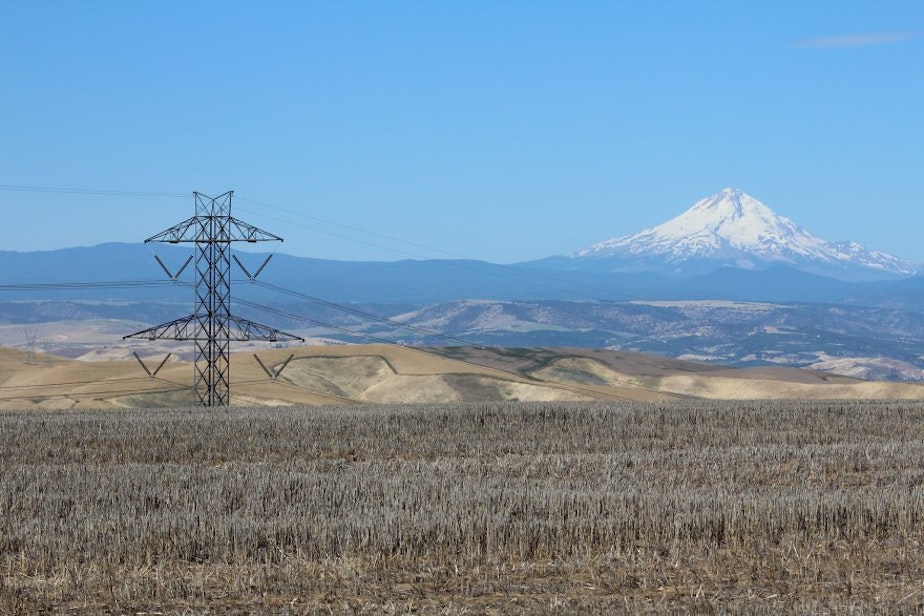As Washington transitions off of fossil fuels, where will new power come from?

Our energy infrastructure is increasingly stressed by growing demand, extreme weather and aging parts. In the Puget Sound area utilities are also ramping up to comply with a state law that will require all electricity to come from clean sources.
Those demands are setting up a massive transition in where our energy comes from, and where it will go in the future.
"One thing that I always think is fascinating is if you look at old photos from 100 years ago, you might see power lines, and they don't really look a lot different than what we see today in our infrastructure," said Joshua Farley, a reporter with the Kitsap Sun and the author of a new series (requires subscription) on energy in the region.
On the Kitsap Peninsula, electricity is channeled up from the south, looping over channels and complex waterways, and including Bainbridge Island. The system is old and also fragile.
"One of the things that makes Kitsap unique, of course, is it is a bit of an island even though it is a peninsula," said Farley.
Puget Sound Energy (PSE) is the primary provider of energy in the region, but a lot percentage -- around 50% -- of their energy comes from fossil fuels, which will need to be phased out in the coming decades as Washington switches to an entirely green energy economy. Increases in electric vehicles and the elimination of natural gas as a heating option will also drive demand in electricity, placing more burden on the grid.
To make up for that needed boost in green energy production, companies across Puget Sound are developing battery banks to store wind and solar energy, and PSE is currently hearing proposals for biodiesel plants on the Kitsap Peninsula.
Sponsored
"There's no question that what our lawmakers have mandated, in terms of controlling those greenhouse gas emissions while also greatly increasing the grid with all of these new electric cars and other technologies -- something will have to give," said Farley.
Listen to Soundside's full conversation with Joshua Farley by clicking the audio above.
You can read Farley's full six-part energy series by clicking here (requires a subscription to The Kitsap Sun).





